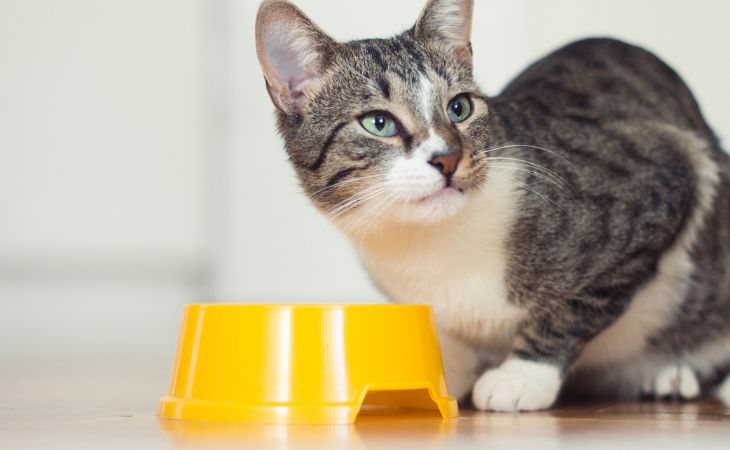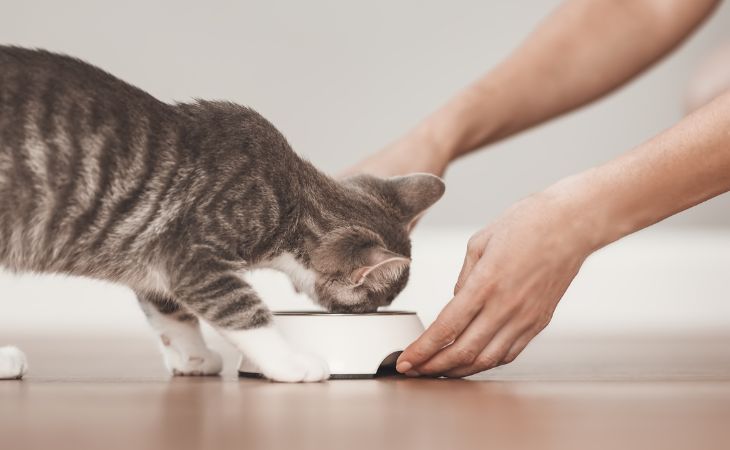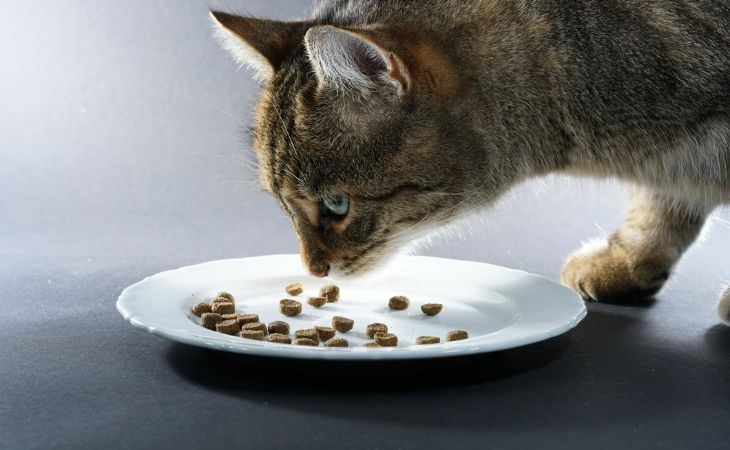Everyone knows that cats love mealtime! When they are feeling well, they can go back to their food bowl around a dozen times a day. If you notice that your cat is starting to eat less and you want to understand what the possible causes could be, read on. In this Letsgetpet article, we go over the common causes of this issue. However, please keep in mind that this information by no means replaces a vet’s opinion.
Your cat may eat less due to a health issue
A vet is the best person to inform you about the changes in your cat’s behavior. If your cat has lost their appetite, this is a good reason to consult a professional. Generally, if your cat is eating less, it could be because they are suffering. Many health problems affect cats’ appetites.
An oral issue
Cats will eat less than usual if they have an infection in the mouth. This is because they will feel pain when chewing their food. This is especially the case if they have a gum inflammation. To prevent themselves from feeling pain, they avoid eating as much as possible. They might also have similar behavior when one of their teeth is damaged. In addition, a dental abscess, which is very painful, can sometimes affect cats and make them want to stay far away from their food bowl. In general, all oral issues that bring pain and discomfort typically make cats lose their appetite.
Digestive issues
It’s difficult to be aware of everything that your cat ingests. For example, your cat can swallow something inappropriate that can cause indigestion. Parasites can also infect your pet’s body, especially if it’s been a long time since they last had their deworming treatment.
Digestive issues are usually manifested through diarrhea and vomiting. By setting up an appointment with your vet, you can ask questions and learn more about your cat’s health condition.

Arthritis
If you notice that your cat is eating less, they may be suffering from pain that worsens when they do movements involved in eating. This risk is even higher as cats age. Osteoarthritis is one of the most recurrent complaints in senior cats (over 10 years of age). This condition affects the lumbar region and cervical spine of felines. It makes going up and down stairs, neck movements and all other actions involving muscles and joints painful. Cats suffering from this condition are less interested in eating than usual.
Other health-related causes
Respiratory problems can also keep pets away from food. A cat suffering from a respiratory ailment that affects their sense of smell could be less attracted to their food than they usually are. The development of a tumor can also be the cause of a loss of appetite. A fever and ingesting fur or other foreign objects can also cause cats to eat less.
When a cat suffers a temporary, benign illness, they can go back to their regular eating habits within 48 hours. So, if you notice that your cat has been eating very little for more than two days, consult a vet, even if there are no signs of illness.
Your cat may eat less due to reasons related to their environment
Like other animals, cats are constantly interacting with their environment. They can be less interested in food because of reasons related to new things related to their living environment.
A change in lifestyle
Cats generally enjoy their daily routine. As soon as they get used to a place, they make it their own. However, cats can develop anxiety and even depression when forced to change their living environment.
Moving or spending time away from home can cause discomfort. Cats tend to be reserved when brought into a new environment. If you’ve just moved or traveled with your cat, this may explain a change in their eating habits. If, after two days, your cat continues to avoid eating, you should consult a vet.
Heat
Cats are very sensitive to variations in temperature and adapt their habits based on climate factors. Based on the weather, cats can feel less of a desire to eat. A study, which was carried out by a college of researchers and published by the Catholic University of Leuven in 2014, concluded that cats eat 15% less in summer than in winter. This happens because their energy requirements are higher in cold weather than in hot weather. For this reason, a cat that eats less when it’s hot often doesn’t have a particular problem.
Introducing new rules of conduct
Cats’ temperamental nature is legendary and their owners are well aware of this. Cats can sometimes find it hard to cope with constraints. Because of this, cats may feel stressed, and eat less if they are upset by a new situation. For example, the unpleasant behavior of a new member of the household or neighbor can provoke this situation. If you keep them confined or prevent them from playing as they wish, they will surely feel upset. Stress from these types of situations can affect their appetite.

Your cat may eat less for reasons related to their food
Is your cat used to eating kibble or wet food from a certain brand, but you suddenly changed this? Even if you do not notice a difference between two products, cats can notice it and become disinterested in their food. This can even happen when the products come from the same brand. This could happen when the recipe has changed, for example.
This article might interest you: How to deal with a finicky cat
Bad quality food
If your cat is eating less than usual, it could also be due to offering low-quality products. If you’ve been storing kibble or other types of cat food for some time, they could have spoiled. Cats use their olfactory system to detect products that are unfit for consumption. As a result, they avoid eating any food that seems unpalatable to them. Your cat may also lose their appetite if you serve them an unappetizing meal.
This article might also interest you: Understanding the nutritional needs of cats
A bad experience related to mealtime
If your cat had an unpleasant experience with a particular meal, it may want to refrain from eating anything as much as possible. If, for example, your cat has suffered from a gastrointestinal upset following the consumption of a certain food, they will associate the ailment with the meal. Even after recovery, they could develop an aversion to the food, lasting a few days or indefinitely. If this is the case, you will need to help your feline regain their appetite by changing their meal.
Source: https://journals.plos.org/plosone/article?id=10.1371/journal.pone.0096071

